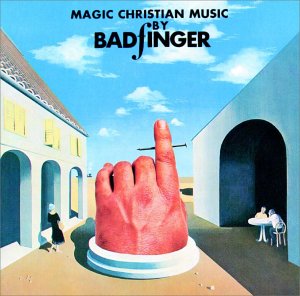
- Format: FLAC

If Badfinger's debut album Magic Christian Music sounds patchy, there's a reason why: It was assembled from three different sources. Although the title suggests that the record is a soundtrack to The Magic Christian it isn't. It's a hodgepodge, containing the group's three contributions to the film, six highlights from the band's pre-Badfinger album Maybe Tomorrow (released when they were known as the Iveys), an alternate take from Maybe Tomorrow, and four new songs. It's little wonder that it doesn't hold together, winding up as a document of Badfinger's unharnessed potential. Since their breakthrough hit "Come and Get It" was written by Paul McCartney, Badfinger was dogged by comparisons to the Beatles but they were hardly copyists. Elements of the Hollies, the Kinks, and very mild psychedelia are discernable throughout Magic Christian Music, all part of the band's search for their own voice. Apart from the lovely pop tune "Dear Angie" and Tom Evans' stately, yearning "Maybe Tomorrow," the Iveys numbers aren't particularly distinguished pop but they are, by and large, pleasant period pieces. On the newer material, Badfinger sounds stronger and their craftsmanship surfaces. Pete Ham emerges as a fine songsmith, with the convincing rocker "Midnight Sun" and the gentle "Walk Out in the Rain." Still, the true standouts among the newer songs are "Crimson Ship" and "Carry on Till Tomorrow," both co-written by Ham and Evans. They're two sides of the same coin - dreamy post-psych pop tunes driven by strong hooks and harmonies. They might not always deliver on that promise on Magic Christian Music, but with its appealing melodies, lite psychedelic flourishes and, yes, Beatlesque harmonies, it's an enjoyable artifact of its time.